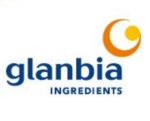
Speaking with DairyReporter.com at the firm’s Ballyragget plant, Glanbia Ingredients Ireland (GII) head of operations Jim O’Neill revealed that its customers consider sustainability a priority when deciding who to work with.
The Kilkenny-based firm, which processes around one third of Ireland’s milk pool, is a leading dairy ingredient exporter and boasts Kraft and Baileys as customers.
“The thing that has surprised us over the last year and a half is the genuine interest that our customers have in sustainability,” said O’Neill during the site visit.
“I would say that of the blue chip branded global customers that we deal with, sustainability is if not number one, a number two issue that they look for in new suppliers. It’s really surprised us.”
Farm and processing level
At processing level, the firm has Carbon Trust Accreditation and operates under the ISO 50001 Global Energy Management Standard.
At farm level, the firm is aiding its 4,300 dairy farmer suppliers in their sustainability efforts through the recent roll out of farm audits.
It is also one of nine pilot companies working with the Irish Food Board, Bord Bia, to cement the country’s reputation as a world leader in sustainability under its recently launched Origin Green programme.
“We’re very fortunate in a way that we have the natural advantages which we can package into a programme. But the surprising thing was the genuine priority that sustainability has now with a number of the key blue chip customers,” added O’Neill.
GII CEO Jim Bergin added: “The key message that we have received in the last year is that a number of our blue chip customers are very much interested and wish to participate closely. They are also very impressed with the maturity of Irish dairy farmers.”
“That’s a very strong platform for us to build on,” said Bergin.
Quota abolition
Sustainability is one platform that Glanbia has invested in in anticipation of the 2015 European Union (EU) milk quota abolition, GII strategic development director Sean Molloy also revealed.
EU Member State milk producers have been capped by milk quotas since the mid-1980s. But in the five years following the abolition, milk production in Ireland is expected to increase by between 50% and 60%.
“There are a number of platforms that we have invested in in recent times with a view to the milk quota abolition in 2015,” said Molloy.
“Sustainability is one very key pillar to that and in the market from our customers and indeed consumers we are getting very, very positive feedback on what we have been doing here.”





